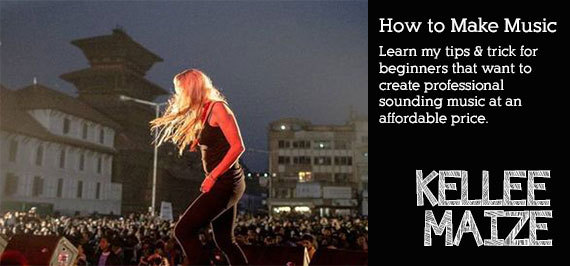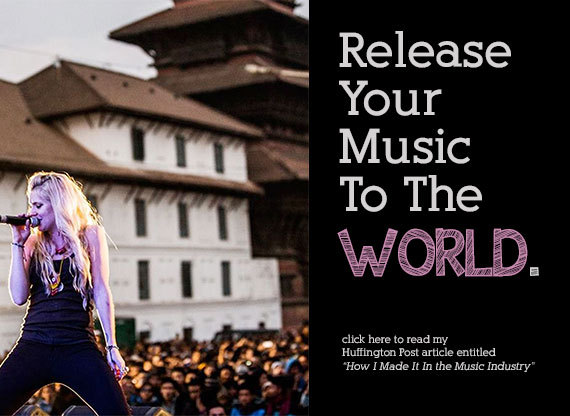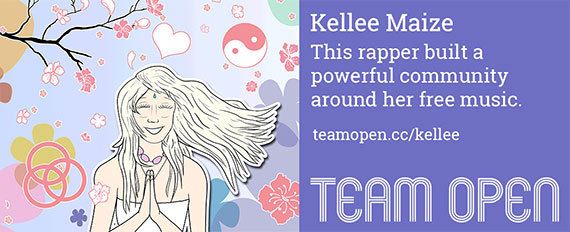Fairly recently I listened to a woman whose view about movies is this, that it's a waste of time to see any movie more than once no matter how good. Whereas my view is that some films are like a work of art. Museums such as the Louvre simply would not exist if everyone saw a work of art once, and that's it. Therefore, why would anyone even bother decorating their own house with some art, if only planning to look at it just once? That also, can be the power of film.
With the 87th Academy Awards days away, I've already seen the Imitation Game twice. Mostly taking place during World War II, one of my favorite scenes in the film is a conversation scene years after the war, between mathematician Alan Turing, acted by Benedict Cumberbatch, and a detective at a London police station. The detective asks him, "Can a machine think like a human?" Alan Turing then replies, "Of course a machine cannot think like a human only because a machine is not human. But just because a machine consists of wires and copper doesn't mean that it cannot think."
It's that scene which recalled to my mind a recent concern over A.I. (artificial intelligence). A concern that not only started by famed astrophysicist Stephen Hawking fearing for the future of mankind, but also with having tech giant former Microsoft chairman Bill Gates joining him. Ms. Sonali Kohli wrote a superb January 30, 2015 web article all about this for Quartz, titled, "Bill Gates joins Elon Musk and Stephen Hawking in saying artificial intelligence is scary."
Then there's Selma and Birdman as two other Oscar nominated films that I've seen twice. And one of the scenes I still recall from Selma, is near the end after a successful third try of a 54 mile civil rights march for voting rights in March 1965, from Selma to Montgomery Alabama. British actor David Oyelowo as Martin Luther King Jr captured that scene brilliantly as he spoke the following words within a soaring speech saying, "Our society has distorted who we are, from slavery to reconstruction, to the precipice on which we now stand."
Also of course I can't forget a very comical scene from the dark comedy Birdman, involving Michael Keaton and Edward Norton. Keaton plays known Hollywood actor Riggan Thomson, who had starred in three blockbuster superhero Birdman films, yet desperately trying to launch a Broadway play to get out of being typecast. While Norton plays talented yet mercurial Broadway actor Mike Shiner as a replacement from a less talented actor. Everything had started to go well during preview night, then Shiner's ego erupts. There's a fight between the two afterwards off stage as Shiner bellows out to Thomson after they fight, "You can't get rid of me. I mean who ya gonna get, Ryan Gosling?" Most recently it's said that Birdman is now a clear front runner for Best Picture, just after director Alejandro Gonzalez Inarritu took the top prize in the Directors Guild of America award, for Outstanding Directorial Achievement in a Feature Film.
Next there's American Sniper, and although I've only seen the film once, I still remember that light hearted scene at a bar, involving Bradley Cooper as Chris Kyle while training to be a Navy SEAL, and Sienna Miller as Taya Studebaker who would later be his wife. Within that scene she later says, "Oh great, another red-neck." To which he replies, "Oh I'm no red-neck, I'm from Texas." She then follows by saying, "Where's the difference?" To which, as I guess was his way in an attempt to break the ice, he says, "We ride horses whereas they ride their cousins."
Yes American Sniper although a blockbuster has come under some heat, with some critics saying it's overly jingoistic, with others saying it's overly political. Yet if this man (Chris Kyle) had honestly felt that way about himself and his country, and who better to know that than his wife who also both consulted as well as having given director Clint Eastwood the green light, then who am I to argue? From what I saw anyway, the film was not a war story, nor a politically motivated story, but only a story about a man, simply a man, with both strengths and flaws.
Moving on, there's the sci-fi film Jupiter Ascending to which I'm glad I've only saw once. "Okay Darryl lay it out, how bad was Jupiter Ascending?" you may ask. Jupiter Ascending was so bad, that you would need to seek help from Professor Charles Xavier, a character from Marvel Comics superheroes the X-Men as the most powerful mutant telepath, to erase the experience of your having seen the film from your thoughts.
Mila Kunis plays Jupiter Jones who lives with her Russian American family in Chicago while also employed in house cleaning. Yet unbeknownst to her, she is also a living reincarnation of a queen long since dead from the planet Jupiter. This also makes her the inherited ruler of Earth. Whereas the queen's three siblings of the house of Abrasax who are ancient rulers, are each fighting to possess the Earth. Why? Because the life-force of people on Earth who are blissfully unaware, as well as inhabitants from other alien worlds, are actually like seeds which are stolen by the house of Abrasax to grant them continued immortality.
The overall story of Jupiter Ascending is so convoluted that it reminds me of a business calculus night class I took and remembered having struggled with. However there was one scene that made sense. British actress Tuppence Middleton who plays Kalique Abrasax, tells Jupiter, "On your world you all fight for oil and land as natural resources. But there is only one very precious resource that's worth having, and that's time." This was said, shortly after Jupiter had startlingly witnessed Kalique rejuvenate herself into a youthful and beguilingly beautiful state. Nevertheless, the film is visually stunning. And if that's your taste, then by all means go for it.
Then of course there's the foreign film Two Days, One Night whereas French actress Marion Cotillard gave a superb performance, and who is currently nominated for Best Actress. She plays Sandra who was recently discharged from a hospital, only to find out that her 16 fellow employees of a Solar panel company in Belgium, were all given a choice. The 16 were either to accept a bonus of 1,000 euros while also letting Sandra go, or, they may vote to keep Sandra yet decline there bonus. Two of the 16 declined from the jump, but she has to persuade the other 14.
Two Days, One Night is certainly not the first film which also is about predatory capitalism. There's Michael Douglas's Oscar winning performance as corporate raider Gordon Gekko in the film Wall Street, as he says, "You've got 90 percent of the American public out there with little or no net worth. I create nothing. I own. We make the rules pal," while speaking to Bud Fox. And although the manager had secretly coerced the 16 employees to vote Sandra out in the first round, there is one scene I remember that is very memorable, with the one employee, a man named Timur. She meets him just after he played soccer, and admits being ashamed of himself by voting against her in the first round. But he'll now support her in the second round. He tells her also, that he still remembers when she stepped up for him, as it was him when he once accidentally broke a few solar panels. In that incident she claimed it was her to the manager, to which Timur recounted what the manager had said to her, "What a fine example to set for the new guy." Sandra then walks away smiling, for Timur did stick to his guns to the end, and had supported Sandra. The Dardenne brothers from Belgium had certainly scored with this film, five stars out of five all the way.
So, can films be seen more than once, while also being works of art? Well obviously course.
With the 87th Academy Awards days away, I've already seen the Imitation Game twice. Mostly taking place during World War II, one of my favorite scenes in the film is a conversation scene years after the war, between mathematician Alan Turing, acted by Benedict Cumberbatch, and a detective at a London police station. The detective asks him, "Can a machine think like a human?" Alan Turing then replies, "Of course a machine cannot think like a human only because a machine is not human. But just because a machine consists of wires and copper doesn't mean that it cannot think."
It's that scene which recalled to my mind a recent concern over A.I. (artificial intelligence). A concern that not only started by famed astrophysicist Stephen Hawking fearing for the future of mankind, but also with having tech giant former Microsoft chairman Bill Gates joining him. Ms. Sonali Kohli wrote a superb January 30, 2015 web article all about this for Quartz, titled, "Bill Gates joins Elon Musk and Stephen Hawking in saying artificial intelligence is scary."
Then there's Selma and Birdman as two other Oscar nominated films that I've seen twice. And one of the scenes I still recall from Selma, is near the end after a successful third try of a 54 mile civil rights march for voting rights in March 1965, from Selma to Montgomery Alabama. British actor David Oyelowo as Martin Luther King Jr captured that scene brilliantly as he spoke the following words within a soaring speech saying, "Our society has distorted who we are, from slavery to reconstruction, to the precipice on which we now stand."
Also of course I can't forget a very comical scene from the dark comedy Birdman, involving Michael Keaton and Edward Norton. Keaton plays known Hollywood actor Riggan Thomson, who had starred in three blockbuster superhero Birdman films, yet desperately trying to launch a Broadway play to get out of being typecast. While Norton plays talented yet mercurial Broadway actor Mike Shiner as a replacement from a less talented actor. Everything had started to go well during preview night, then Shiner's ego erupts. There's a fight between the two afterwards off stage as Shiner bellows out to Thomson after they fight, "You can't get rid of me. I mean who ya gonna get, Ryan Gosling?" Most recently it's said that Birdman is now a clear front runner for Best Picture, just after director Alejandro Gonzalez Inarritu took the top prize in the Directors Guild of America award, for Outstanding Directorial Achievement in a Feature Film.
Next there's American Sniper, and although I've only seen the film once, I still remember that light hearted scene at a bar, involving Bradley Cooper as Chris Kyle while training to be a Navy SEAL, and Sienna Miller as Taya Studebaker who would later be his wife. Within that scene she later says, "Oh great, another red-neck." To which he replies, "Oh I'm no red-neck, I'm from Texas." She then follows by saying, "Where's the difference?" To which, as I guess was his way in an attempt to break the ice, he says, "We ride horses whereas they ride their cousins."
Yes American Sniper although a blockbuster has come under some heat, with some critics saying it's overly jingoistic, with others saying it's overly political. Yet if this man (Chris Kyle) had honestly felt that way about himself and his country, and who better to know that than his wife who also both consulted as well as having given director Clint Eastwood the green light, then who am I to argue? From what I saw anyway, the film was not a war story, nor a politically motivated story, but only a story about a man, simply a man, with both strengths and flaws.
Moving on, there's the sci-fi film Jupiter Ascending to which I'm glad I've only saw once. "Okay Darryl lay it out, how bad was Jupiter Ascending?" you may ask. Jupiter Ascending was so bad, that you would need to seek help from Professor Charles Xavier, a character from Marvel Comics superheroes the X-Men as the most powerful mutant telepath, to erase the experience of your having seen the film from your thoughts.
Mila Kunis plays Jupiter Jones who lives with her Russian American family in Chicago while also employed in house cleaning. Yet unbeknownst to her, she is also a living reincarnation of a queen long since dead from the planet Jupiter. This also makes her the inherited ruler of Earth. Whereas the queen's three siblings of the house of Abrasax who are ancient rulers, are each fighting to possess the Earth. Why? Because the life-force of people on Earth who are blissfully unaware, as well as inhabitants from other alien worlds, are actually like seeds which are stolen by the house of Abrasax to grant them continued immortality.
The overall story of Jupiter Ascending is so convoluted that it reminds me of a business calculus night class I took and remembered having struggled with. However there was one scene that made sense. British actress Tuppence Middleton who plays Kalique Abrasax, tells Jupiter, "On your world you all fight for oil and land as natural resources. But there is only one very precious resource that's worth having, and that's time." This was said, shortly after Jupiter had startlingly witnessed Kalique rejuvenate herself into a youthful and beguilingly beautiful state. Nevertheless, the film is visually stunning. And if that's your taste, then by all means go for it.
Then of course there's the foreign film Two Days, One Night whereas French actress Marion Cotillard gave a superb performance, and who is currently nominated for Best Actress. She plays Sandra who was recently discharged from a hospital, only to find out that her 16 fellow employees of a Solar panel company in Belgium, were all given a choice. The 16 were either to accept a bonus of 1,000 euros while also letting Sandra go, or, they may vote to keep Sandra yet decline there bonus. Two of the 16 declined from the jump, but she has to persuade the other 14.
Two Days, One Night is certainly not the first film which also is about predatory capitalism. There's Michael Douglas's Oscar winning performance as corporate raider Gordon Gekko in the film Wall Street, as he says, "You've got 90 percent of the American public out there with little or no net worth. I create nothing. I own. We make the rules pal," while speaking to Bud Fox. And although the manager had secretly coerced the 16 employees to vote Sandra out in the first round, there is one scene I remember that is very memorable, with the one employee, a man named Timur. She meets him just after he played soccer, and admits being ashamed of himself by voting against her in the first round. But he'll now support her in the second round. He tells her also, that he still remembers when she stepped up for him, as it was him when he once accidentally broke a few solar panels. In that incident she claimed it was her to the manager, to which Timur recounted what the manager had said to her, "What a fine example to set for the new guy." Sandra then walks away smiling, for Timur did stick to his guns to the end, and had supported Sandra. The Dardenne brothers from Belgium had certainly scored with this film, five stars out of five all the way.
So, can films be seen more than once, while also being works of art? Well obviously course.







































